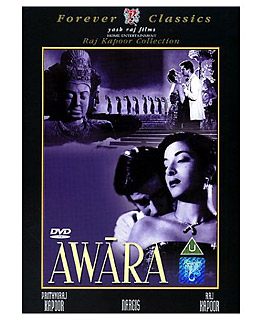
He was more than the primal star of Indian cinema. To most of the planet, Raj Kapoor was India in all its vitality, humanity and poignancy. Awara (1951) and the other ’50s films Kapoor directed, produced and starred in with Nargis, his muse and mistress, were sensations not only in India and throughout the Arab world but in the Soviet Union (where the movies’ songs became top hits) and Communist China (Mao once named Awara his favorite film). A Ronald Colman lookalike, Kapoor wanted to be India’s Charlie Chaplin; Awara translates as “The Tramp.” He plays Raju, son of a stern judge (Kapoor’s own father Prithviraj) who had banished his wife after she was abducted, perhaps ravaged, by a brigand. Raju, not knowing his prominent, blighted parentage, grows up a vagabond, falls in love with the judge’s adopted daughter (Nargis) and is charged with a crime that must be decided by … his father. With a wild dream sequence, enough passions and plot anomalies for a dozen Hollywood soapers, and a luminous, startling seaside seduction, Awara serves as a superb primer for Indian cinema and its actor-auteur, forever revered as The Great Showman.
